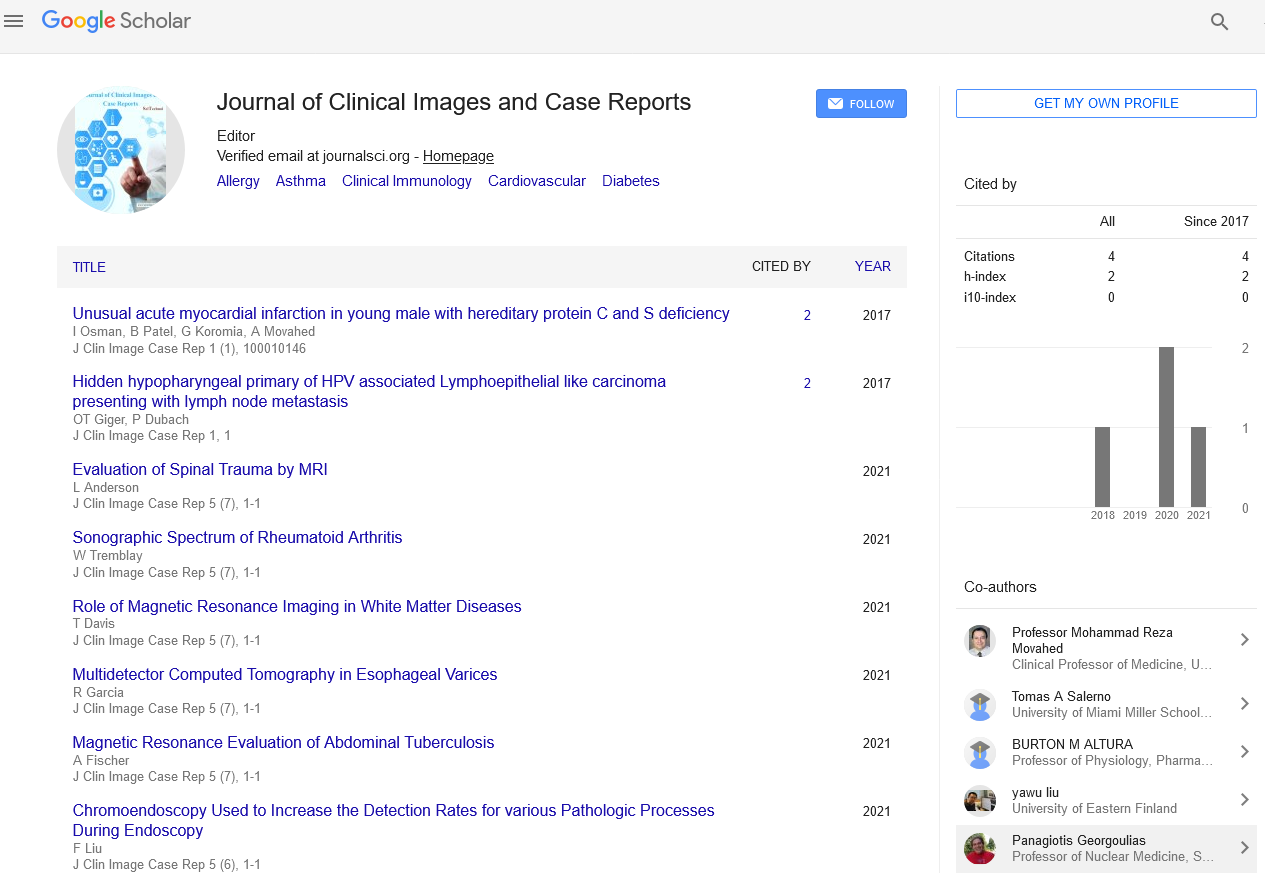Opinion Article, J Clin Image Case Rep Vol: 8 Issue: 1
Resolve the Intricacies of Endocrinology: Navigating Hormonal Harmony
Pedro Austad*
1Department of Obstetrics and Gynecology, Division of Reproductive Endocrinology and Infertility, Northwestern University, Evanston, Illinois, USA
*Corresponding Author: Pedro Austad,
Department of Obstetrics and Gynecology,
Division of Reproductive Endocrinology and Infertility, Northwestern University,
Evanston, Illinois, USA
E-mail: Austadpedro076@gmail.com
Received date: 23 January, 2024, Manuscript No. CICR-24-130410;
Editor assigned date: 25 January, 2024, PreQC No. CICR-24-130410 (PQ);
Reviewed date: 09 February, 2024, QCNo. CICR-24-130410;
Revised date: 16 February, 2024, Manuscript No. CICR-24-130410 (R);
Published date: 23 February, 2024, DOI: 10.4172/CICR.1000287
Citation: Austad P (2024) Resolve the Intricacies of Endocrinology: Navigating Hormonal Harmony. J Clin Image Case Rep 8:1.
Description
The field of endocrinology delves into the study of hormones and their intricate orchestration of physiological processes. From regulating metabolism and growth to influencing mood and reproduction, hormones wield profound influence over human health and well-being. Understanding the complexities of endocrinology is essential for unraveling the mysteries of various medical conditions and devising effective treatment strategies.
The pituitary gland: The command center
Nestled within the protective confines of the skull, the pituitary gland holds sway over a myriad of bodily functions as the master regulator of the endocrine system. Comprising the anterior and posterior lobes, this small gland produces and releases a multitude of hormones that govern growth, metabolism, stress response, and reproductive function. Disorders of the pituitary gland, such as pituitary adenomas or hypopituitarism, can manifest in a spectrum of symptoms ranging from growth abnormalities to hormonal imbalances, underscoring its pivotal role in maintaining hormonal harmony.
Thyroid gland: Metabolic maestro
Situated in the anterior neck, the thyroid gland plays a central role in regulating metabolism through the production of thyroid hormonesthyroxine (T4) and triiodothyronine (T3). These hormones exert widespread effects on virtually every organ system, influencing energy expenditure, temperature regulation, and even cognitive function. Dysfunctions of the thyroid gland, including hypothyroidism and hyperthyroidism, can lead to a myriad of symptoms such as fatigue, weight changes, and mood disturbances, underscoring the critical importance of thyroid hormone balance in maintaining metabolic equilibrium.
Adrenal glands: Responding to stress
As both an endocrine and exocrine organ, the pancreas plays a dual role in maintaining glucose homeostasis. The endocrine portion of the pancreas, comprised of clusters of cells known as islets of Langerhans, secretes insulin and glucagon-hormones that work in concert to regulate blood sugar levels. Insulin facilitates the uptake of glucose into cells, while glucagon promotes the release of stored glucose into the bloodstream during times of fasting or stress. Dysfunction of the pancreatic endocrine cells can lead to conditions such as diabetes mellitus, characterized by impaired glucose regulation and a host of associated complications, highlighting the pancreas's difficult role as the guardian of glucose balance.
Adrenal glands: Responding to stress
The adrenal glands, situated atop the kidneys, play a pivotal role in the body's response to stress through the production of hormones such as cortisol and adrenaline. Cortisol, often referred to as the "stress hormone," helps regulate metabolism, immune function, and the body's response to stressors. Adrenaline, meanwhile, triggers the "fight or flight" response, mobilizing energy reserves and increasing heart rate and blood pressure in times of danger. Dysregulation of adrenal function, as seen in conditions like Cushing's syndrome or Addison's disease, can lead to a host of symptoms including fatigue, weight changes, and cardiovascular disturbances, emphasizing the different role of the adrenal glands in maintaining physiological equilibrium under stress.
Gonads: Architects of reproduction
The gonads, including the ovaries in females and the testes in males, are responsible for the production of sex hormones-estrogen, progesterone, and testosterone-that govern reproductive function and secondary sexual characteristics. These hormones play a central role in regulating menstrual cycles, fertility, libido, and bone health, among other functions. Disruptions in gonadal function, such as Polycystic Ovary Syndrome (PCOS) or hypogonadism, can have profound implications for reproductive health and overall well-being, underscoring the importance of hormonal balance in maintaining optimal reproductive function.
Conclusion
The intricate interplay of hormones within the endocrine system serves as the cornerstone of human physiology, governing a vast array of bodily functions essential for health and vitality. Disorders of the endocrine system can arise from a multitude of factors, including genetic predispositions, environmental influences, and lifestyle choices, underscoring the need for a comprehensive understanding of endocrinology in clinical practice. By unraveling the intricacies of hormonal regulation, clinicians can better diagnose, treat, and manage endocrine disorders, restoring hormonal harmony and improving the quality of life for patients worldwide.
 Spanish
Spanish  Chinese
Chinese  Russian
Russian  German
German  French
French  Japanese
Japanese  Portuguese
Portuguese  Hindi
Hindi 